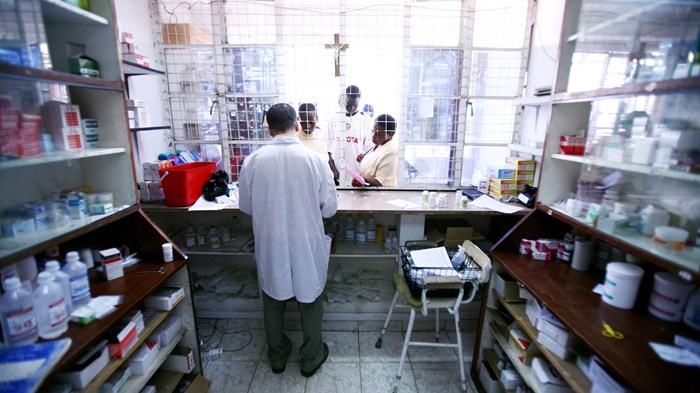
African Christians who have long worked against HIV/AIDS either in health facilities or in church ministry are anxiously watching the current AIDS fight in Congress, which will have direct effects on their programs on the ground.
The September 30 deadline is approaching to reauthorize the President’s Emergency Plan for AIDS Relief (PEPFAR), a US-funded HIV/AIDS program that is currently supporting 20 million patients on treatment, most of them in sub-Saharan Africa. US pro-life groups are opposing the five-year reauthorization on the grounds that the Biden administration has “hijacked” the program to provide and promote abortions as well as loosen African abortion laws. African faith-based providers say they have seen no evidence of that.
“We assure the United States Congress that the claim that PEPFAR supports or promotes abortion is to us strange, unfounded, and unfortunate,” wrote a group of 350 African church leaders, mostly evangelicals as well as some Catholics, in a Sept. 15 letter to Congress. “We would like to reassure you and the American public that we have seen no evidence that this is something that has ever happened.”
They urged the passage of the five-year reauthorization, saying that without it, “our people will be left in fear of the future.” The signers included pastors, heads of evangelical networks, and medical directors of Christian hospitals.
Congress has reauthorized PEPFAR every five years since former president George W. Bush began the program in 2003, but this year, reauthorization appears unlikely by the deadline. This week more domestic pro-life groups announced their opposition to a multi-year reauthorization.
PEPFAR will keep its currently appropriated funding without reauthorization, so Congress has some time to make a deal. But a failure to reauthorize puts long-term health projects as well as certain features of the program in doubt. African health experts said it could have unpredictable consequences on the ground, like making patients worry that their life-sustaining drugs are going to be cut off.
Before PEPFAR began, Nkatha Njeru ran an HIV clinic at Nazareth Hospital, a historic mission hospital outside of Nairobi, Kenya. It was one of the early health facilities distributing antiretroviral drugs, which were expensive and hard to obtain at the time.
After the advent of PEPFAR, the drug prices dropped dramatically, and programs like Njeru’s were able to treat exponentially more patients. In the first year of receiving PEPFAR funding, the clinic scaled up from treating about 50 patients to about 1,200. “We’re not talking about ‘people living with HIV.’ It’s people that I can name,” she said.
She no longer runs the clinic, but she said the current fight in Congress makes her “very anxious.”
For 20 years, she said, patients have known they can go every month to pick up their drugs. Even a short gap in the drugs, which suppress viral load, would allow opportunistic infections.
“If [patients] don’t know if they will get the next dose, it’s going to cause panic as well,” she said. “And we don’t know what people will do—they might register in more than one clinic, just so that they can pile up drugs. And obviously that’s going to be disastrous.”
More domestic pro-life groups announced their opposition to the five-year reauthorization this week. Americans United for Life, the March for Life, the National Right to Life, Catholic Vote, Students for Life of America, and the lobbying arm of Focus on the Family have joined The Heritage Foundation, Susan B. Anthony Pro-Life America, and the Family Research Council in opposing the multi-year reauthorization.
On Tuesday the groups articulated their position in a letter to congressional Republican leaders, saying that while they want PEPFAR to continue, Biden had “hijacked” PEPFAR “to promote abortion in African countries.” The groups called it “neocolonialism.”
Their argument reiterated arguments from Rep. Chris Smith, a Republican who had previously been a major advocate for PEPFAR but has long been frustrated that it was exempt from the Mexico City policy (except during the Trump administration). That policy prohibits federally-funded international groups from performing or advocating for abortion with separate resources.
The groups want reauthorization to include more pro-life restrictions like Mexico City. The bipartisan politics of PEPFAR have always been tenuous, but this is the biggest stalemate in its 20 years.
In support of their position, the US pro-life groups cited a June letter from a different group of more than 100 African church leaders, mostly Catholic, who were concerned about PEPFAR promoting abortion. But the letter does not argue against reauthorization.
In that letter, leaders worried that PEPFAR was “supporting so-called family planning and reproductive health principles and practices, including abortion, that violate our core beliefs concerning life, family, and religion.” Pro-life groups usually understand “reproductive health” as code for abortion.
“We ask that PEPFAR remain true to its original mission and respect our norms, traditions, and values,” the June letter says.
The Biden administration has since clarified that “reproductive health” in the context of PEPFAR refers only to “HIV prevention, testing, and treatment services,” “education, testing and treatment for sexually transmitted infections,” cancer screening and treatment, and “gender-based violence prevention and care.”
“PEPFAR does not fund abortions,” the amended document from the administration reads.
Njeru, who ran the HIV clinic in Kenya, is now the CEO of the Africa Christian Health Associations Platform, which represents roughly 10,000 mission hospitals and faith-based health facilities in 32 countries in sub-Saharan Africa, where PEPFAR programs are concentrated. Her organization signed a different letter to Congress from 35 faith-based organizations working in Africa urging reauthorization.
Some of the facilities in her network implement PEPFAR; many were doing HIV/AIDS care before PEPFAR existed. Faith-based health facilities make up a large part—sometimes a majority—of health facilities in sub-Saharan African nations.
Njeru told CT that none of the US pro-life organizations opposing reauthorization had contacted her about their concerns.
She said that PEPFAR is such a big program that there is a “risk” of misusing funds, but that the program had more oversight than other foreign aid programs.
“The most rigorous accountability I’ve had to deal with has been on PEPFAR funding,” she said. “Especially we Christians should not be trivializing issues around [being] pro-life. … [But] we haven’t had evidence yet of PEPFAR money being used for reasons that it’s not meant to do.”
The HIV clinic that Njeru used to run, which had 50 patients before PEFPAR, now has 5,000 patients on antiretroviral treatment, she said, and is currently treating about 300 pregnant mothers who are HIV positive so their babies will be HIV negative—another feature of PEPFAR.
The Sept. 15 letter from African church leaders said the PEPFAR program “has succeeded in protecting our families and children beyond our greatest expectations.”
“It has been an answer to prayer,” they wrote. “We have all experienced the terror of HIV/AIDS, either losing a dear family member or members of our congregations. PEPFAR brought not only relief from the plague of HIV/AIDS but hope for our future as well.
“We pray you will listen to our humble voices. … Life expectancy is rising, orphanhood is falling, healthy births are increasing in health care facilities, and other health challenges are being recognized and addressed where they never were before.”

Support Our Work
Subscribe to CT for less than $4.25/month
















